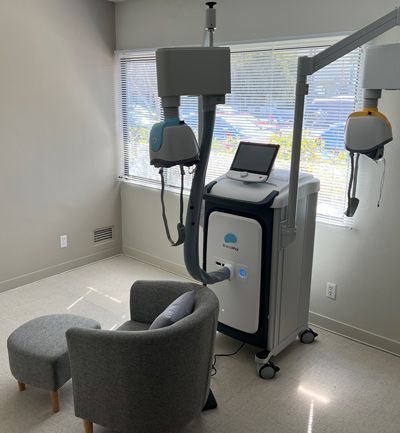If you’ve been feeling overwhelmed by a combination of depression and anxiety, you may be experiencing what is known as anxious depression. In this blog post, we will delve into the signs and symptoms of anxious depression, explore the distinctions between anxiety and depression, and provide guidance on seeking help and support. Whether you’re struggling with your mental health or know someone who is, understanding these crucial aspects can pave the way towards healing and recovery.
What is anxious depression?
Welcome to a deeper understanding of anxious depression and its significant impact on daily life. In this section, we will define what anxious depression entails and shed light on its prevalence. Let’s explore how this condition can affect individuals, including yourself. Anxious depression is one of many mood disorders that can influence energy, motivation, and relationships.
Defining Anxious Depression
To begin, it’s crucial to grasp the concept of anxious depression. Anxious depression, also known as mixed anxiety-depressive disorder, is a mental health condition characterized by a combination of anxiety symptoms and depression symptoms. Unlike generalized anxiety disorder, which primarily involves chronic and excessive worry about various aspects of life, anxious depression includes significant depressive symptoms alongside anxiety. Individuals experiencing anxious depression often struggle with feelings of worry, nervousness, sadness, and hopelessness simultaneously.
This condition can manifest differently for each person, with symptoms varying in intensity and duration. Common signs of anxious depression include persistent feelings of unease, fatigue, trouble concentrating, irritability, and changes in appetite or sleep patterns. It is essential to recognize these symptoms early on to seek appropriate support and treatment.
Prevalence of Anxious Depression
Anxious depression is more common than you may think. Studies indicate that a considerable number of individuals worldwide experience symptoms of both anxiety and depression concurrently. The overlap between these two mental health disorders underscores the need for a comprehensive approach to diagnosis and management. These conditions are classified as mental disorders, highlighting the importance of seeking help from a mental health professional.
It is essential to understand that anxious depression can affect individuals of all ages, backgrounds, and lifestyles. Whether you are a student facing academic stress, a professional navigating work pressures, or a retiree adjusting to life changes, anxious depression can impact anyone at any stage of life.
Moreover, societal factors such as increased stress, social isolation, and economic challenges can contribute to the prevalence of anxious depression. Recognizing the widespread nature of this condition can help reduce stigma and promote open conversations about mental health.
Impact on Your Daily Life
The presence of anxious depression can significantly disrupt your daily life and overall well-being. Depression affects your emotions, behaviors, and daily activities, making it challenging to focus on tasks, maintain relationships, and engage in enjoyable activities. The constant sense of unease and sadness can drain your energy and enthusiasm for life.
Furthermore, untreated anxious depression can lead to more severe mental health issues and physical health complications over time. It is essential to address these symptoms promptly by seeking professional help and exploring treatment options. From therapy and counseling to medication and lifestyle changes, various interventions can effectively manage anxious depression and improve your quality of life.
Understanding the defining features and prevalence of anxious depression is the first step toward taking control of your mental health. By recognizing the signs and seeking support, you can embark on a journey towards healing and recovery. Remember, you are not alone in this experience, and help is available to guide you through this challenging period.
“According to the National Comorbidity Survey, 58% of those with lifetime depression were also observed to have at least one anxiety disorder.”
Signs and symptoms of anxious depression
Welcome to this informative section on recognizing the signs and symptoms of anxious depression. If you are experiencing anxiety alongside symptoms of depression, it’s important to be aware of the indicators that may suggest you are dealing with anxious depression specifically. Let’s delve into the physical, emotional, and behavioral signs that could be indicative of this mental health condition. It is also crucial to distinguish between anxious depression and an anxiety disorder, as they require different approaches to treatment and management.
1. Physical Symptoms:
Physical manifestations of anxious depression can include feelings of fatigue that persist despite rest, muscle tension that causes discomfort or pain, and disturbances in your sleep patterns. You may find yourself constantly fatigued, with aching muscles and difficulty falling or staying asleep.
2. Emotional Signs:
Emotionally, individuals with anxious depression often experience a deep sense of persistent sadness that lingers, even when there may be moments of temporary relief. Feelings of irritability and being easily agitated are common, alongside a pervasive sense of hopelessness that colors your outlook on life.
3. Behavioral Changes:
Behavioral changes are another hallmark of anxious depression. You may notice yourself withdrawing from social interactions, preferring to be alone or isolated. Changes in appetite, such as overeating or loss of interest in food, can also occur. Additionally, you may struggle with concentrating on tasks that were once manageable, finding your focus wavering and your mind racing.
Recognizing these signs and symptoms is the first step towards seeking help and support. If you resonate with any of the descriptions mentioned above, consider reaching out to a mental health professional for guidance. Remember, you are not alone in your struggles, and there are effective treatments available to help you manage anxious depression.
“Because patients with chronic anxiety often develop depressive disorders over time, it also has been hypothesized that anxiety disorders actually may be, in some cases, a prodrome for depression.”
Distinguishing Between Anxiety and Depression

When it comes to mental health, it’s crucial to understand the distinctions between anxiety and depression. By recognizing the key differences in symptoms and manifestations, you can better navigate the complex landscape of these two conditions. In this section, we will explore how to differentiate Anxious Depression from other conditions, grasp the nuances of their symptoms, and shed light on how anxiety and depression can coexist in Anxious Depression. Unlike panic disorder, which is characterized by sudden feelings of fear with symptoms like chest pain and a pounding heart, Anxious Depression involves a persistent state of worry combined with depressive symptoms. Additionally, we will discuss major depressive disorder, its symptoms, and its impact on functioning.
Differentiating Anxious Depression from Other Conditions
Anxious Depression is a unique condition that combines symptoms of both anxiety and depression. Unlike other types of mood disorders, such as major depressive disorder or persistent depressive disorder, Anxious Depression involves a blend of emotional experiences that can be challenging to identify. Individuals with Anxious Depression often struggle with feelings of worry, unease, and sadness simultaneously, making it distinct from general anxiety or depression.
When assessing your mental health, it’s essential to consult with a qualified healthcare professional who can provide an accurate diagnosis and tailor a treatment plan to address your specific needs. By recognizing the distinct features of Anxious Depression, you can take the first step towards managing your symptoms and improving your overall well-being.
Understanding the Key Differences in Symptoms and Manifestations
One of the critical aspects of distinguishing between anxiety and depression is understanding the unique symptoms and manifestations associated with each condition. While anxiety typically involves feelings of apprehension, restlessness, and heightened arousal, depression is characterized by persistent feelings of sadness, hopelessness, and loss of interest in activities.
In Anxious Depression, individuals may experience a complex interplay of these symptoms, leading to a blend of emotional states that can be overwhelming. By gaining insight into the specific manifestations of Anxious Depression, you can develop a clearer understanding of your mental health and seek appropriate support and treatment.
Understanding the Key Differences in Symptoms and Manifestations
One of the critical aspects of distinguishing between anxiety and depression is understanding the unique symptoms and manifestations associated with each condition. While anxiety typically involves feelings of apprehension, restlessness, and heightened arousal, depression is characterized by persistent feelings of sadness, hopelessness, and loss of interest in activities.
In Anxious Depression, individuals may experience a complex interplay of these symptoms, leading to a blend of emotional states that can be overwhelming. By gaining insight into the specific manifestations of Anxious Depression, you can develop a clearer understanding of your mental health and seek appropriate support and treatment.
Living with anxious depression
Welcome to a discussion on Living With Anxious Depression. In this section, we will explore the causes and risk factors, the challenges and impact on daily life, and the importance of self-care when dealing with anxious depression. Let’s delve into each of these aspects to gain a better understanding of this mental health condition.
Causes and Risk Factors
Anxious depression can stem from a combination of genetic, biological, environmental, and psychological factors. Individuals with a family history of depression or anxiety disorders may be more prone to developing anxious depression. Additionally, certain life events such as trauma, chronic stress, or major life changes can trigger or exacerbate symptoms of anxious depression. Persistent depressive disorder, characterized by a low, dark or sad mood persistently present for at least 2 years, can also contribute to anxious depression.
It is essential to recognize the warning signs and seek professional help if you suspect you or someone you know may be experiencing anxious depression. Through therapy, medication management, and other treatment options, individuals can effectively manage their symptoms and improve their quality of life.
Challenges and Impact on Daily Life
Living with anxious depression, especially when it manifests as severe depression, can present a variety of challenges that impact daily life. Common symptoms include persistent feelings of sadness, anxiety, or hopelessness, changes in appetite or sleep patterns, difficulty concentrating, and loss of interest in activities once enjoyed.
These symptoms can significantly disrupt daily routines, relationships, work, and overall well-being. Remember, you are not alone in this journey, and there are resources available to help you navigate through these difficulties.
The Importance of Self-Care
Self-care plays a vital role in managing anxious depression and promoting overall mental health and well-being. It is important to prioritize self-care activities that bring you joy and comfort, whether it’s spending time in nature, reading a book, or socializing with friends. In addition, maintaining a healthy lifestyle with regular exercise can help greatly.
Remember, self-care is not selfish but necessary for your mental and emotional well-being. By prioritizing self-care practices, you can build resilience, cope with challenges more effectively, and enhance your overall quality of life while living with anxious depression.
Seeking Help and Treatment Options
When facing the challenges of anxious depression, it is crucial to seek help and explore various treatment options to improve your mental well-being. Here, we will delve into the importance of reaching out to mental health professionals, the benefits of medication management for anxious depression, and the significance of combining therapy with medication.
The Importance of Reaching Out to Mental Health Professionals
Recognizing the signs of anxious depression and acknowledging that you may need professional help is the first step towards managing your condition effectively. Psychiatry Treatment Centers offer mental health experts to diagnose and treat mental health disorders, including anxious depression. The American Psychiatric Association provides standardized diagnostic criteria for these conditions.
By seeking help from a mental health professional, you can receive a proper diagnosis based on your symptoms and experiences. This diagnosis is essential for creating a personalized treatment plan that addresses your specific needs and challenges.
Exploring Medication Management for Anxious Depression
Medication can play a crucial role in managing the symptoms of anxious depression, especially for individuals who may not find relief through therapy alone. Antidepressants and anti-anxiety medication is often prescribed to help regulate mood, reduce anxiety, and relieve depressive symptoms. The Diagnostic and Statistical Manual of Mental Disorders is often used to diagnose these conditions, emphasizing the importance of seeking professional help for accurate diagnosis and treatment.
It is important to work closely with a psychiatrist or healthcare provider to determine the most suitable medication for your condition. Regular monitoring and adjustments to the dosage may be necessary to ensure the effectiveness of the medication and minimize any potential side effects.
Combining Therapy and Medication
While medication can be beneficial in managing symptoms, it is often most effective when combined with therapy. Therapy, such as cognitive-behavioral therapy (CBT) or talk therapy, can help you address underlying issues, develop coping strategies, and build resilience against future episodes of anxious depression. This combined approach is particularly effective for conditions like major depression.
By integrating therapy into your treatment plan alongside medication management, you can gain a deeper understanding of your condition, learn valuable skills to manage symptoms, and work towards long-term mental wellness.
Remember, everyone’s experience with anxious depression is unique, and what works for one person may not work for another. It is essential to explore different treatment options, collaborate with mental health professionals, and stay committed to your wellness journey.
Brainsway TMS Therapy for Anxious Depression
In August of 2022, Brainsway received 510(k) clearance from the U.S. Food and Drug Administration (FDA) for their Deep TMS™ H7 Coil. This specific coil can be sued to treat adults who suffer from major depressive disorder and depression including those with comorbid anxiety symptoms commonly known as anxious depression. The best part? Psychiatry Treatment Centers offers Brainsway TMS therapy. TMS offers another option for depression treatment – especially if you are trying to consume less medication.

Find hope and recovery
Welcome to a space filled with hope and a potential path to recovery at Psychiatry Treatment Centers. Here, you can explore the array of mental health services and expertise specifically tailored to support individuals like you on their journey towards emotional well-being.
Have you been considering seeking professional support and exploring treatment options to aid in your recovery process? Psychiatry Treatment Centers may just be the place for you. At Psychiatry Treatment Centers of Hollywood CA and Richmond Hill GA, you will find a dedicated team of professionals committed to providing personalized care to each individual seeking help. From experienced psychiatrists to compassionate therapists, every service is crafted with your well-being in mind.
Whether you are struggling with anxiety, depression, or other mental health challenges, we offer a holistic approach to treatment. Through a combination of therapy, medication management, and innovative techniques such as TMS therapy, your recovery journey can be supported and guided towards a positive outcome.
Are you ready to embark on a journey of hope and recovery? Consider reaching out to Psychiatry Treatment Centers and take the first step towards a brighter future. Remember, you are not alone, and with the right support, healing and transformation are possible.
Cited Sources:
Kessler RC, Nelson CB, McGonagle KA, et al. Comorbidity of DSM-III-R major depressive disorder in the general population: results from the US National Comorbidity Survey. Br J Psychiatry. 1996;168(suppl 30):17–30. [PubMed] [Google Scholar]
Schapira K, Roth M, Kerr TA, et al. The prognosis of affective disorders: the differentiation of anxiety states from depressive illnesses. Br J Psychiatry. 1972;121:175–181. [PubMed] [Google Scholar]

